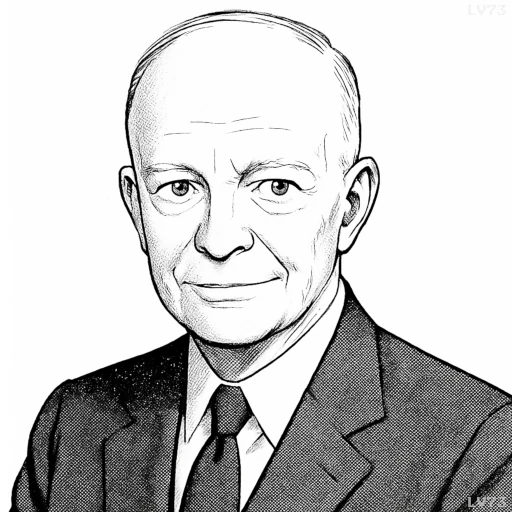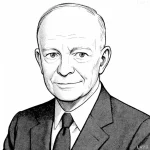“Neither a wise man nor a brave man lies down on the tracks of history to wait for the train of the future to run over him.”

- October 14, 1890 – March 28, 1969
- American
- The 34th President of the United States, General, Military Leader
table of contents
Quote
“Neither a wise man nor a brave man lies down on the tracks of history to wait for the train of the future to run over him.”
Explanation
In this vivid metaphor, Eisenhower warns against passivity and fatalism in the face of change. He argues that neither wisdom nor courage is found in those who resist the momentum of progress or ignore historical forces, hoping to preserve the status quo. Instead, he implies that true leadership requires engagement, foresight, and the will to shape the future rather than be crushed by it.
The historical context likely relates to Eisenhower’s presidency during a time of great transformation—the Cold War, civil rights struggles, and technological advancement. He recognized that history moves forward with or without the consent of those in power, and that clinging to outdated policies or ideals can lead to obsolescence or irrelevance. His quote is both a call to adapt and a critique of leaders who resist necessary change out of fear, pride, or inertia.
Today, this message applies broadly: from political reform and climate action to technological innovation and social justice. Eisenhower’s words remind us that wisdom means recognizing change, and bravery means acting upon it, not denying it. Those who fail to respond to history’s movement risk being left behind—or worse, undone—by the very future they refused to acknowledge.
Would you like to share your impressions or related stories about this quote in the comments section?




